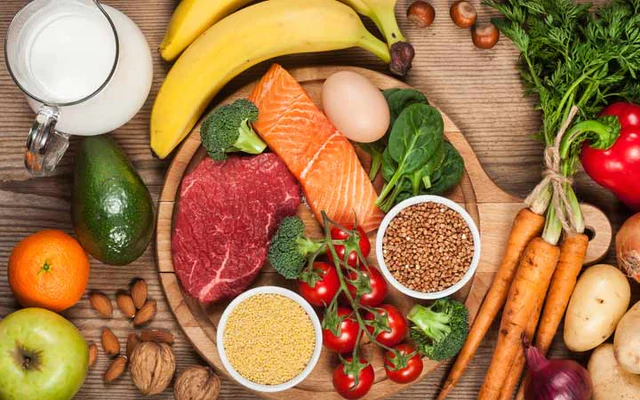
Hair is often considered a vital component of our physical appearance, and many people strive to maintain healthy, luscious locks. While genetics and overall health play significant roles in hair growth, the presence of certain vitamins and minerals is also crucial for maintaining strong and vibrant hair. In this article, we will explore the role of vitamins and minerals in hair growth and discuss how they can contribute to healthy hair. Although there is no proof that any one vitamin will promote hair growth more quickly, deficiencies in some vitamins can cause hair loss or thin, brittle hair. People frequently ask about vitamin and mineral supplementation, as well as nutrition, as a way to avoid or treat dermatological conditions, especially hair loss. Given the overwhelming and contradictory body of evidence that exists on this subject, responding to these questions is frequently difficult. There are several reasons to believe that micronutrients play a part in non-scarring alopecia.
Getting enough of each vitamin in your diet may aid in maintaining good hair.
The potential benefits of the following nutrients for promoting hair development have been studied by researchers:
vitamin D,
vitamin E,
vitamin B complex
According to this article, these and other vitamins may help to promote thick, healthy hair.
Biotin (Vitamin B7)
Biotin is perhaps the most well-known vitamin when it comes to promoting hair growth. It plays a crucial role in the production of keratin, a protein that forms the structure of the hair. Biotin also helps in the metabolization of amino acids, which are the building blocks of protein. A biotin deficiency can lead to hair loss or brittle hair. Foods rich in biotin include eggs, nuts, seeds, and sweet potatoes. Additionally, biotin supplements are available for those who require an extra boost.
Vitamin A
Vitamin A is essential for the production of sebum, a natural oil that moisturizes the scalp and keeps hair healthy. It also aids in the growth and development of cells, including hair follicles. However, it’s important to maintain a balance, as excessive amounts of vitamin A can lead to hair loss. Good sources of vitamin A include carrots, sweet potatoes, spinach, and kale.
Vitamin C
Vitamin C is an antioxidant that helps protect the hair follicles from damage caused by free radicals. It also aids in the production of collagen, a protein that provides strength to the hair strands. Furthermore, vitamin C assists in the absorption of iron, another important nutrient for hair growth. Citrus fruits, strawberries, kiwi, and bell peppers are excellent sources of vitamin C.
Vitamin D
Vitamin D is not only crucial for overall health but also plays a role in hair growth. It helps stimulate hair follicles and promotes the production of new hair strands. Vitamin D is synthesized by the body when exposed to sunlight, but it can also be obtained through dietary sources such as fatty fish, fortified dairy products, and mushrooms.
Iron
Iron deficiency is a common cause of hair loss, especially in women. Iron is necessary for the production of hemoglobin, a protein that carries oxygen to the hair follicles. Without adequate iron levels, the hair follicles can become weak and lead to hair thinning or shedding. Good sources of iron include red meat, poultry, fish, spinach, and legumes.
Zinc
Zinc is an essential mineral that plays a role in cellular growth and repair, including the hair follicles. It helps maintain the structural integrity of the hair strands and supports healthy scalp conditions. Zinc deficiency can result in hair loss and scalp problems. Foods rich in zinc include oysters, beef, pumpkin seeds, and lentils.
Omega-3 Fatty Acids
Omega-3 fatty acids are healthy fats that promote overall well-being, including hair health. They provide nourishment to the hair follicles, reduce inflammation, and help keep the scalp hydrated. Sources of omega-3 fatty acids include fatty fish like salmon and sardines, flaxseeds, chia seeds, and walnuts.
While these vitamins and minerals play a vital role in hair growth, it’s important to note that excessive supplementation can have adverse effects. It’s generally best to obtain these nutrients through a well-balanced diet. However, if you suspect a deficiency or are unable to meet your nutritional needs through food alone, consult with a healthcare professional who can recommend appropriate supplements. Micronutrients like vitamins and minerals contribute significantly to immune cells and appropriate hair follicle development, however, their exact effects are not well understood. Lack of certain micronutrients may be a modifiable risk factor for the occurrence, development, and management of alopecia. To establish any correlation between hair loss and such micronutrient deficiency, large double-blind placebo-controlled trials are necessary to ascertain the effect of specific micronutrient supplementation on hair growth in individuals with both micronutrient deficiency and non-scarring alopecia.
In conclusion, vitamins and minerals are essential for promoting healthy hair growth. Biotin, vitamin A, vitamin C, vitamin D, iron, zinc, and omega-3 fatty acids all contribute to maintaining strong and vibrant hair. By incorporating a nutrient-rich diet and ensuring adequate intake of these vital nutrients, you can support the health of your hair and enjoy a luscious mane.
